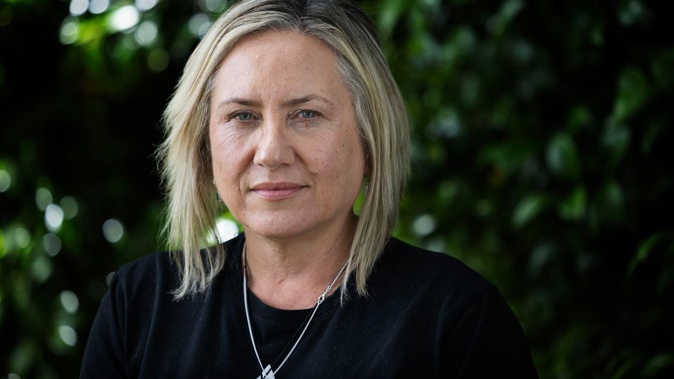
Triple-negative breast cancer is aggressive, likely to recur and nearly always requires chemotherapy. A new trial involving New Zealand women looked at whether patients might have a more targeted, less intensive treatment.
Breast cancer had stalked Lisa Martin’s family. Two aunties and a cousin had been diagnosed with it, and another cousin with breast cancer had died at just 36 years old.
Martin, from Hamilton, was alert to this risk for much of her life. She was also conscious that it could be hereditary: she has three adult daughters.
She was unsurprised when she was diagnosed with breast cancer two years ago, aged 49.
Because of her family history and her job as a nurse in a GP clinic, the disease was picked up early. But there was cause for concern.
Unlike her relatives, she had triple-negative breast cancer. It is the most aggressive form of the cancer, the most likely to recur and has fewer treatment options than other cancers.
“My doctor said it was like my cancer was wearing an invisible cloak,” Martin said. “So my body couldn’t detect that anything abnormal was going wrong. My immune system couldn’t find it.”
Her doctor, Dr Adam Stewart, said she met the criteria for an international clinical trial, which she joined without hesitation.
Patients with her condition would typically be treated in New Zealand with surgery, chemotherapy and possibly radiation treatment.
The NeoN clinical trial investigated adding an immunotherapy drug, nivolumab (Opdivo), to the treatment and halving the number of chemotherapy cycles, before undergoing surgery.
When Martin presented for surgery at the end of the process, surgeons removed two lumps from under her arm, and tests found they were cancer-free.
“I had always been optimistic but this was amazing news, fantastic news,” she said.
/cloudfront-ap-southeast-2.images.arcpublishing.com/nzme/DXSEBDG7GZEDTMIUR5PCS3G5CA.jpg) Martin, a mental health nurse, had a family history of breast cancer. She was not surprised when it caught up with her, she said. Photo / Mike Scott
Martin, a mental health nurse, had a family history of breast cancer. She was not surprised when it caught up with her, she said. Photo / Mike Scott
In all, 108 women with early stage, triple-negative breast cancer took part in the clinical trial, including four women from New Zealand.
More than half of the participants in the trial had no evidence of cancer in the breast and lymph nodes when they went for surgery after treatment.
“That’s quite a high number,” said Dr Marion Kuper, an oncologist at Waikato Hospital and co-chair of the study. “That means half of your population is probably going to have a very favourable prognosis.”
Breast cancer patients who had a full cycle of chemotherapy without the immunotherapy drug had around a 50 per cent cancer-free rate.
“You might think well that’s very similar [to the trial],” said Dr Kuper. “But bear in mind that in our trial people received half of the number of chemotherapies and avoided a toxic drug.”
That means the treatment combination used in the trial had far fewer short- and long-term side effects.
Martin said that while she felt occasionally rundown by chemotherapy, the treatment was relatively smooth. She initially kept working, before cutting back her hours and then stopping altogether. She also continued going to the gym for much of the five-month treatment period.
The initial results from the Australian trial, which was coordinated by Breast Cancer Trials, are being presented at the San Antonio Breast Cancer Symposium in the United States today.
There are some limitations to the study. The sample size was small and only included people with stage 1 or 2 cancers who had no more than four lymph nodes, Kuper said.
It would also be useful to analyse whether the benefits of the treatment only applied to sub-groups within the trial rather than everyone with triple-negative cancers, she said.
Around 11 per cent of breast cancer patients in New Zealand are triple-negative.
Breast Cancer Foundation NZ research manager Adele Gautier said it often affected younger women and those diagnosed with it were more likely to have chemotherapy than any other cancer. It also had few treatment options.
She said immunotherapy treatment alongside chemotherapy was now the standard of care for triple-negative patients, but New Zealand was relatively slow in adopting this approach.
Gautier said the big question would be whether cancer returned in patients who had undergone this treatment in clinical trials.
“What we don’t know yet is if that high rate of [elimination] would last - hopefully that will prove the case in coming years.”
The drug used in the clinical trial, nivolumab (Opdivo), is not yet registered with Medsafe. A similar drug, Keytruda, is not funded by Pharmac but an application is before the agency.
Gautier said the high cost of Keytruda, around $80,000, meant only a handful of breast cancer patients took this option in New Zealand.
Isaac Davison is an Auckland-based reporter who covers health issues. He joined the Herald in 2008 and has previously covered the environment, politics, and social issues.
Take your Radio, Podcasts and Music with you









